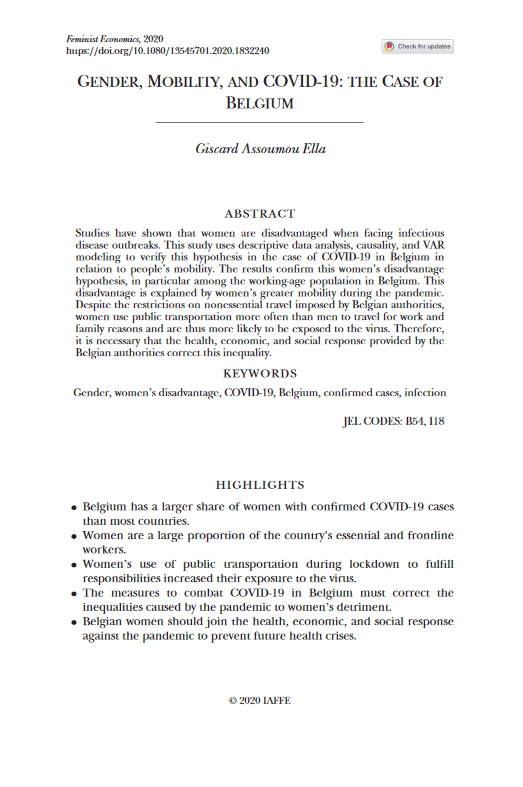Studies have shown that women are disadvantaged when facing infectious disease outbreaks. This study uses descriptive data analysis, causality, and VAR modeling to verify this hypothesis in the case of COVID-19 in Belgium in relation to people’s mobility. The results confirm this women’s disadvantage hypothesis, in particular among the working-age population in Belgium. This disadvantage is explained by women’s greater mobility during the pandemic. Despite the restrictions on nonessential travel imposed by Belgian authorities, women use public transportation more often than men to travel for work and family reasons and are thus more likely to be exposed to the virus. Therefore, it is necessary that the health, economic, and social response provided by the Belgian authorities correct this inequality.
Highlights
-
Belgium has a larger share of women with confirmed COVID-19 cases than most countries.
-
Women are a large proportion of the country’s essential and frontline workers.
-
Women’s use of public transportation during lockdown to fulfill responsibilities increased their exposure to the virus.
-
The measures to combat COVID-19 in Belgium must correct the inequalities caused by the pandemic to women’s detriment.
-
Belgian women should join the health, economic, and social response against the pandemic to prevent future health crises.






